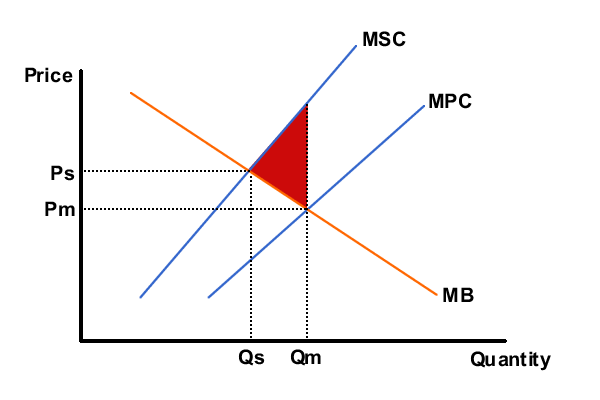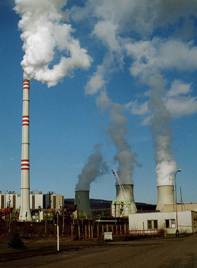Government responses to threats to sustainability
Market failure in production occurs when the production of a good or service creates external costs that are harmful to third parties, e.g. when a factory pollutes a river with waste or the atmosphere with greenhouse gasses. The total costs to society of these activities are the private costs of the firm plus the external costs that the firm creates, but does not pay for. Since the producer does not pay the total cost, the good or service is over-produced, which results in a welfare loss.

 National governments can respond to negative externalities of production and to resource depletion and CO2 pollution using a number of mechanisms designed to reduce emissions of global greenhouse gasses and promote sustainability. These include:
National governments can respond to negative externalities of production and to resource depletion and CO2 pollution using a number of mechanisms designed to reduce emissions of global greenhouse gasses and promote sustainability. These include:
- environmental taxation, such as carbon taxes, to recover the external costs of pollution
- legislation setting environmental standards and banning firms which fail to meet these standards
- adoption of cap and trade schemes for carbon trading
- funding for cleaner technologies
Taxation and financial penalties increase the market price of carbon. This provides strong incentives to reduce carbon emissions by sending signals:
- to consumers about what goods and services produce high carbon emissions and which should be used more sparingly.
- to producers about which inputs emit more carbon, and which emit less, so encouraging them to move to lower-carbon technologies.
- to inventors and innovators to develop and introduce lower-carbon products and processes.
